Some Australian contemporary didgeridoo players have managed to develop their own unique style. Here are some names for your general knowledge! Didgeridoo originates from the Aborigines of Australia. However, a few steps have allowed the contemporary didgeridoo play style to become known throughout the world. Since the 1980s, several Australian players have been involved in this phenomenon. Here is my suggestion for a small selection of the most influential of them. I grew up with most of them (and a whole generation of players!) in the early 2000s. In this article, we will only talk about the contemporary didgeridoo, the traditional didgeridoo will come later.
First generation of Australian didgeridoo players
Mark Atkins
Mark Atkins is a descendant of the Yamitji people. He is one of the most famous Australian didgeridoo players in the world. His game is powerful, a real steamroller! Mark Atkins, like Alan Dargin, is one of the first generation of players to develop the contemporary didgeridoo. He is not only a didgeridoo player but also a singer, guitarist, composer, painter, storyteller… In short, a very complete artist. He had the opportunity to collaborate with great names such as Philip Glass, Jimmy Page, Robert Plant…
Alan dargin
Alan dargin was born in New South Wales on July 13, 1967 and died on February 24, 2008 in Sydney. His grandfather taught him to play didgeridoo at the age of five. We owe him some techniques now widely used in contemporary playing. He has performed with the Vienna Philharmonic Orchestra and the London Symphony Orchestra. He has participated in albums by artists such as Jimmy Page, Robert Plant, Tommy Emmanuel and Yothu Yindi.
Alan Dargin was a great bridge between the traditional and contemporary didgeridoo playing because he himself was an Aboriginal man. He was also an actor and you may have seen him unknowingly in the movie “Priscilla, Queen of the Desert”. He also played in front of François Mitterrand during the French President’s visit to Australia.
Alan Dargin had a deep sensitivity, I remember very well in 2004 at Airvault where he played an acoustic solo in the festival hall in front of the hundreds of festivalgoers who came to shelter from a storm that was raging outside… Unforgettable moment.
Ash dargan
Ash Dargan did not know until he was 21 years old that he had Aboriginal origins (Larakia people). He learned to play didgeridoo quite late in life but that didn’t stop him from becoming one of the most talented players of his generation! Ash Dargan was one of the first to play didgeridoos with clear sounds. His playing is based on the finesse of the harmonics. He was also one of the first to develop “WA”. He has, to his credit, an impressive number of albums! Ash, Dust and Dirt is, without hesitation, the reference for his solo albums.
Ash Dargan is the player who had the biggest impact on me at the beginning. His technique was very different from what was being played at the time. His precision and fluidity have inspired many players!
David Hudson
David Hudson comes from the North-Eastern coast of Australia where he still lives (Cairns). He is a descendant of the Djabugay Aboriginal community. He plays a style with a very present bass accompanied by harmonics that characterize his style. David Hudson has collaborated with musicians in different styles such as New Age (Ooramin), tribal sounds (Didgeralia) and contemporary music (Didge Dance).
Charlie Mc Mahon
Charlie Mc Mahon was born in 1951 in the Blue Mountains. He is the founder of the band Gondwanaland and is one of the first Australians (non-Aboriginal) to become professional in didgeridoo. He also patented the didjeribone, one of the first sliding didgeridoo enabling the player to tune the instrument. Charlie Mc Mahon’s style is based on experimental music and mixing didgeridoo with synthetic sounds. The sound is precise, favoring harmonics over bass.
Adam plack
Originally from Australia, Adam Plack currently lives in Los Angeles where he mainly composes and records film music. He is part of the first generation of players, certainly a little less known than Mark Atkins or Ash Dargan. He nevertheless participated in the history of the contemporary didgeridoo. His style is massive with very present bass.
Second generation of Australian didgeridoo player
If Mullumby
In the same vein as eMDee, but this time in Byron Bay, Australia, Wild Marmelade consists of a drummer and a didgeridoo. The compositions they propose have only one purpose: to make you dance! Si Mullumby is the didgeridoo player in this duo. He started at the same time as Mark Hoffman (as did Ganga Giri) and all three are in the second generation of players. Tongue attacks are widely used and give jerky rhythms to his style that follow the drummer.
Ganga Giri
Formed in the mid-1990s, Ganga Giri could be defined as tribal techno. This music is made to move people and you can feel it! Mixing electro-modern sounds with didgeridoo, accompanied by “tribal” dancers on stage, Ganga Giri claims the multi-cultural side of his country, Australia.
Xavier rudd
Xavier Rudd is a multi-instrumentalist. When he is not singing, he plays both harmonica and Djembe as well as guitar and of course didgeridoo. He is influenced by various styles such as Reggae, Blues, Funk… His albums are a mix of all these instruments and all these musical styles. Known for the energy he radiates on stage, he is the kind of musician to listen to live!
Mark Robinson
Mark Robinson is from Darwin. Unlike the other players mentioned in this article, he has never sought to pursue a professional career or make himself known. Hazards of life led him to live in Germany for a few years. During this period, he was able to teach and spread his style in Europe, and particularly in France. Mark has a style of his own, with extreme tongue attacks. The accuracy of his attacks has been a real discovery for many players!
Conclusion: the basics of contemporary didgeridoo playing
These players laid the first foundations of contemporary didgeridoo playing. It can be noted that the first generation developed a massive sound with diffuse harmonics, while tongue attacks seem to be beginning to take hold with the second generation. The harmonics are already beginning to be played less. This insight into the past allows us to better understand the development of the contemporary world didgeridoo playing that was being prepared at the time! The rest in a future article!
Don’t hesitate to share this article and share other names of players that may have influenced you!



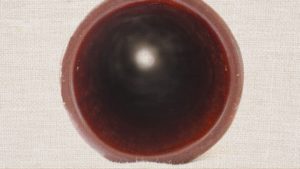

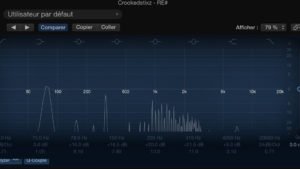


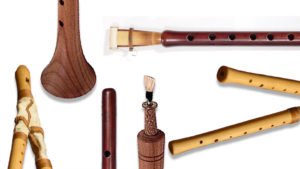

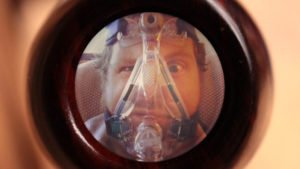
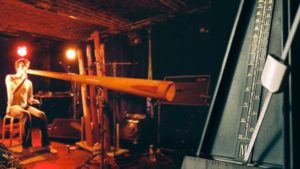

These didgeridoo players didn’t lay the foundation, I tell you who did, Yothu Yindi, Warumpi Band, Mornington Island dancers, Paul Pryor, Graham Wilson Darran Williams, Joshua Walker and these copycats rode off these didgeridoo players, you need to do more research and development. This false information and nothing more than ego..
Hi Malachi,
I’m sorry if you are not agree with my post… I spoke about who I know when I started the didgeridoo and who had a big influence in Europe at that time (beginning 2000).
Also, I spoke about Yothu Yindi and Warumpi Band but on an other post (not yet in English but in French here).
I didn’t know about some others names, thanks!
However, please, I propose that we remain cordial. It will be more pleasant!
Thank you very much!
Thanks for the response, no worries, but just know that the name’s I mentioned are the pioneers, In fact Darran Williams, is the only didgeridoo player to walk into Buckingham palace to perform for Queen Elizabeth at her Jubilee celebrations in 2002, touring the UK with Kakastisti, masters drummers from Ghana, here is his webpage, https://darrandidja.wixsite.com/littlecreek
maybe just do a bit more research before posting comments about didgeridoo players.. such as the ones on this page.. another name is Pastor Don Brady (R.I.P) from the Ku Ku Yalanji tribe that taught didgeridoo in Brisbane and North Queensland..to Many but no one knows about..
Thank you for your time.
Kindly
Malachi..
Thanks for your link Malachi, it will be helpful for the visitors, and for me too.
Maybe the article’s translation in English is not perfect, but I wanted to speak about 10 didgeridoo players who peoples told me when I started the didge. And of courses, they are not the only one.
But your link will be a great complement!
All the best and see you maybe in Australia (or in Europe) one day!